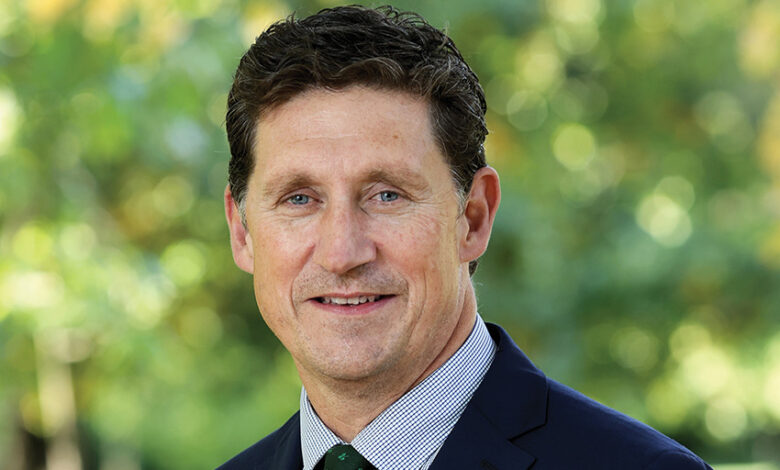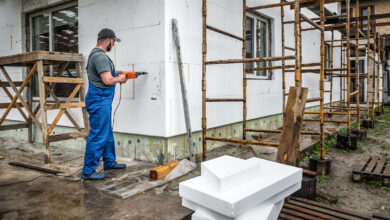Minister Eamon Ryan TD: Offshore wind delivery gaining momentum

As we all work together to create a sustainable future for Ireland, it is vital that we use our vast offshore wind resource to create renewable energy and ensure the security of our own energy supply, writes Minister for the Environment, Climate and Communications, Eamon Ryan TD.
My department is leading on delivering legislative, regulatory, and policy developments to accelerate the delivery of Ireland’s significant offshore renewable energy (ORE) potential and to meet climate commitments and carbon reduction targets set out in the Climate Action Plan and the Programme for Government, as well as EU and international agreements.
The Climate Action Plan (CAP) 2023 commits to achieving 5GW of installed offshore wind capacity by 2030 with an additional 2GW earmarked for the production of green hydrogen. It also includes a suite of actions to realise Ireland’s ORE potential. The Programme for Government commits to a long-term plan to take advantage of a potential of at least 30GW of floating wind post-2030.
The establishment of offshore wind in Ireland is a significant undertaking, involving action across many areas of government. The Offshore Wind Delivery Taskforce I established is central to this work. The taskforce will drive delivery and capture wider and longer-term economic and business opportunities associated with the development of offshore renewables in Ireland.
To achieve this, the taskforce is developing a single system-wide plan, bringing together the work ongoing across government to deliver on our offshore wind ambitions. This includes matters relating to supply chain, ports policy, skills and workforce, and regulatory consenting.
The Maritime Area Planning (MAP) Act 2021 provides a legislative basis to harness the potential of ORE in Ireland’s entire exclusive economic zone (EEZ) and outside the 12 nautical mile coastal zone provided for in the Foreshore Act (1933). The Maritime Area Regulatory Authority (MARA) will be established in the coming months, as provided for under the MAP Act.
In advance of this, in December 2022, I granted Maritime Area Consents (MAC) to seven phase one ORE projects. This represents a significant milestone in the delivery of offshore wind in Ireland and is an important step towards reaching our 2030 climate targets. The MACs enable phase one projects to begin their pre-planning application engagement with An Bord Pleanála. During the planning permission phase all projects will be subject to a full environmental assessment.
The terms and conditions for the first offshore wind auction under the Renewable Electricity Support Scheme (ORESS 1) were recently approved by Government. The auction, which will take place in the first half of 2023, is expected to provide a route to market for up to 2.5GW of ORE.
Ireland’s transmission system operator (TSO), EirGrid is working to ensure that the onshore electricity transmission system can integrate the ORE target by 2030. EirGrid has processed applications for grid connection assessments (GCAs), a requirement for entry to the ORESS 1 auction.
Local coastal and marine communities play a central role in facilitating and supporting the development of Ireland’s offshore renewable electricity ambitions and, as a result of a new framework I recently published, these communities are in line to benefit significantly from offshore renewable electricity projects. Under the framework, generators of offshore wind will be required to make substantial annual contributions to community benefit funds.
A key feature of the new framework is that generators must make contributions prior to commencing operation. This means that coastal and marine communities could start to benefit from as early as 2025 and could look forward to receiving benefits for up to 25 years.
Ireland intends to move from a developer-led to a plan-led approach (the enduring regime) for the development of the ORE sector, meaning that the State will play a much greater role in identifying the most suitable areas in our maritime space for ORE development in the long term.
A new Offshore Renewable Energy Development Plan (OREDP II) will be published this year setting out the national spatial strategy to support this. Together with the National Marine Planning Framework, it will guide the sustainable and planned development of ORE.
The OREDP II will assess the potential for ORE in Ireland’s maritime area and provide an evidence base to facilitate the identification of broad areas of interest most suited for ORE in the long term. These areas will be further refined in advance of a statutory designation via Designated Maritime Area Plans (DMAPs) for ORE as provided for in the MAP Act.
Public consultations are a key feature of developing the OREDP II, DMAPs, and their associated environmental assessments. The draft OREDP II and the associated environmental reports will be subject to an eight-week public consultation period. A wide variety of views will also be sought from stakeholders across government departments, state bodies, and the industry and environmental sectors.
My department has reviewed submissions to design a pathway for a second batch (phase two) of offshore wind projects required to achieve Ireland’s ORE target for 2030. A policy statement, which will provide clarity on investment in phase two, will be issued by the Government in February 2023.
In September 2022, Ireland hosted a ministerial meeting for the energy ministers of the North Seas Energy Cooperation (NSEC) and the European Commission. At this landmark meeting, NSEC ministers agreed to reach at least 260GW of offshore wind energy by 2050. This represents more than 85 per cent of the EU-wide ambition of reaching 300GW by 2050. This unified approach will help to ensure that Europe will be energy independent and that these new renewable energy sources from our seas will be fairly shared and affordable. Ireland’s offshore wind potential is integral to this European ambition.
Maximising our offshore wind energy capacity will eventually eradicate our dependence on imported fossil fuels. It will put us on a direct path to zero CO2 emissions while at the same time creating jobs, future-proofing our businesses, and improving our quality of life.





